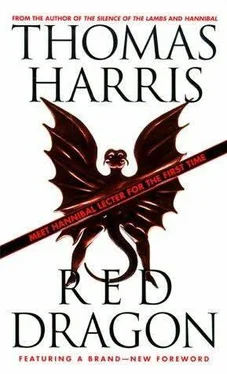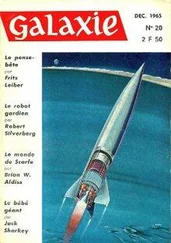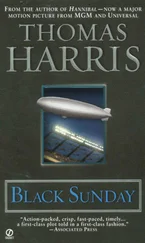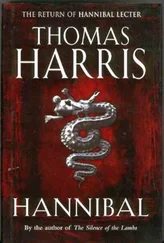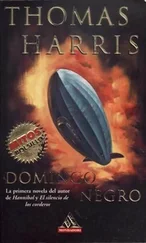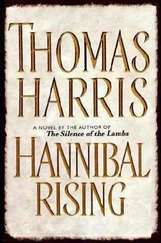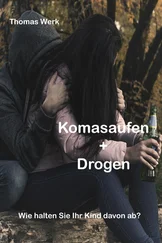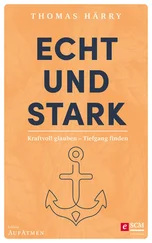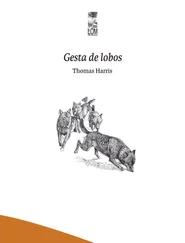A horse in the pasture beside the yard kept pace with Graham as he walked along the whitewashed fence toward the rear of the property. He gave the horse a Life-Saver and left him at the corner as he turned along the back fence behind the outbuildings.
He stopped when he saw the depression in the ground where the Jacobi children had buried their cat Thinking about it in the Atlanta police station with Springfield, he had pictured the outbuildings as white. Actually they were dark green.
The children had wrapped the cat in a dish towel and buried it in a shoebox with a flower between its paws.
Graham rested his forearm on top of the fence and leaned his forehead against it.
A pet funeral, solemn rite of childhood. Parents going back into the house, ashamed to pray. The children looking at one another, discovering new nerves in the place loss pierces. One bows her head, then they all do, the shovel taller than any of them. Afterward a discussion of whether or not the cat is in heaven with God and Jesus, and the children don't shout for a while.
A certainty came to Graham as he stood, sun hot on the back of his neck: as surely as the Tooth Fairy killed the cat, he had watched the children bury it. He had to see that if he possibly could.
He did not make two trips out here, one to kill the cat and the second for the Jacobis. He came and killed the cat and waited for the children to find it.
There was no way to determine exactly where the children found the cat. The police had located no one who spoke to the Jacobis after noon, ten hours or so before they died.
How had the Tooth Fairy come, and where had he waited?
Behind the back fence the brush began, running head-high for thirty yards to the trees. Graham dug his wrinkled map out of his back pocket and spread it on the fence. It showed an unbroken strip of woods a quarter-mile deep running across the back of the Jacobi property and continuing in both directions. Beyond the woods, bounding them on the south, was a section line road that paralleled the one in front of the Jacobi house.
Graham drove from the house back to the highway, measuring the distance on his odometer. He went south on the highway and turned onto the section line road he had seen on the map. Measuring again, he drove slowly along it until the odometer showed him he was behind the Jacobi house on the other side of the woods.
Here the pavement ended at a low-income housing project so new it did not show on his map. He pulled into the parking lot. Most of the cars were old and sagging on their springs. Two were up on blocks.
Black children played basketball on the bare earth around a single netless goal. Graham sat on his fender to watch the game for a moment.
He wanted to take off his jacket, but he knew the.44 Special and the flat camera on his belt would attract attention. He always felt a curious embarrassment when people looked at his pistol.
There were eight players on the team wearing shirts. The skins had eleven, all playing at once. Refereeing was by acclamation.
A small skin, shoved down in the rebounding, stalked home mad. He came back fortified with a cookie and dived into the pack again.
The yelling and the thump of the ball lifted Graham's spirits.
One goal, one basketball. It struck him again how many things the Leedses had. The Jacobis too, according to the Birmingham police when they ruled out burglary. Boats and sporting equipment, camping equipment, cameras and guns and rods. It was another thing the families had in common.
And with the thought of the Leedses and the Jacobis alive came the thought of how they were afterward, and Graham couldn't watch basketball anymore. He took a deep breath and headed for the dark woods across the road.
The underbrush, heavy at the edge of the pine woods, thinned when Graham reached the deep shade and he had easy going over the pine needles. The air was warm and still. Blue jays in the trees ahead announced his coming.
The ground sloped gently to a dry streambed where a few cypresses grew and the tracks of raccoons and field mice were pressed into the red clay. A number of human footprints marked the streambed, some of them left by children. All were caved in and rounded, left several rains ago.
Past the streambed the land rose again, changing to sandy loam that supported ferns beneath the pines. Graham worked his way uphill in the heat until he saw the light beneath the trees at the edge of the woods.
Between the trunks he could see the upper story of the Jacobi house.
Undergrowth again, head-high from the edge of the woods to the Jacobis' back fence. Graham worked his way through it and stood at the fence looking into the yard.
The Tooth Fairy could have parked at the housing development and come through the woods to the brush behind the house. He could have lured the cat into the brush and choked it, the body limp in one hand as he crawled on his knees and other hand to the fence. Graham could see the cat in the air, never twisting to land on its feet, but hitting on its back with a thump in the yard.
The Tooth Fairy did that in daylight – the children would not have found or buried the cat at night.
And he waited to see them find it. Did he wait for the rest of the day in the heat of the underbrush? At the fence he would be visible through the rails. In order to see the yard from farther back in the brush, he would have to stand and face the windows of the house with the sun beating on him. Clearly he would go back to the trees. So did Graham.
The Birmingham police were not stupid. He could see where they had pushed through the brush, searching the area as a matter of course. But that was before the cat was found. They were looking for clues, dropped objects, tracks – not for a vantage point.
He went a few yards into the forest behind the Jacobi house and worked back and forth in the dappled shade. First he took the high ground that afforded a partial view of the yard and then worked his way down the tree line.
He had searched for more than an hour when a wink of light from the ground caught his eye. He lost it, found it again. It was the ring-pull tab from a soft-drink can half-buried in the leaves beneath an elm tree, one of the few elms among the pines.
He spotted it from eight feet away and went no closer for five minutes while he scanned the ground around the tree. He squatted and brushed the leaves away ahead of him as he approached the tree, duck-walking in the path he made to avoid ruining any impressions. Working slowly, he cleared the leaves all around the trunk. No footprints had pressed through the mat of last year's leaves.
Near the aluminum tab he found a dried apple core eaten thin by ants. Birds had pecked out the seeds. He studied the ground for ten more minutes. Finally he sat on the ground, stretched out his aching legs, and leaned back against the tree.
A cone of gnats swarmed in a column of sunlight. A caterpillar rippled along the underside of a leaf.
There was a wedge of red creek mud from the instep of a boot on the limb above his head.
Graham hung his coat on a branch and began to climb carefully on the opposite side of the tree, peering around the trunk at the limbs above the wedge of mud. At thirty feet be looked around the trunk, and there was the Jacobi house 175 yards away. It looked different from this height, the roof color dominant. He could see the backyard and the ground behind the outbuildings very well. A decent pair of field glasses would pick up the expression on a face easily at this distance.
Graham could hear traffic in the distance, and far away he heard a beagle on a case. A cicada started its numbing bandsaw buzz and drowned out the other sounds.
A thick limb just above him joined the trunk at a right angle to the Jacobi house. He pulled himself up until he could see, and leaned around the trunk to look at it.
Читать дальше
